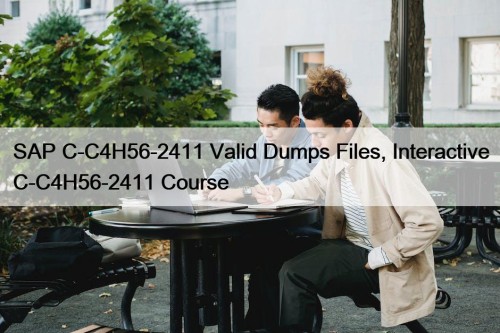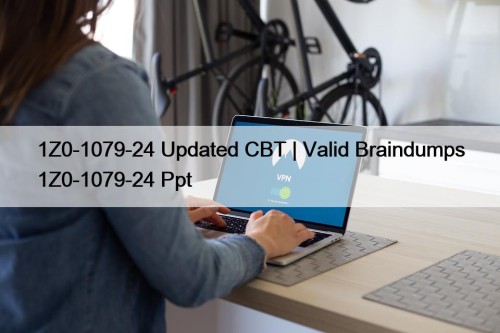Most Popular
 SAP C-C4H56-2411 Valid Dumps Files, Interactive C-C4H56-2411 Course
SAP C-C4H56-2411 Valid Dumps Files, Interactive C-C4H56-2411 Course
SAP C-C4H56-2411 So as you see, we are the corporation ...
 100% Pass Efficient GIAC - GDAT Exam Cram Pdf
100% Pass Efficient GIAC - GDAT Exam Cram Pdf
In order to provide the most effective GDAT exam materials ...
 1Z0-1079-24 Updated CBT | Valid Braindumps 1Z0-1079-24 Ppt
1Z0-1079-24 Updated CBT | Valid Braindumps 1Z0-1079-24 Ppt
Prep4sures ensures your success with money back assurance. There is ...



2025 Authoritative 100% Free JN0-664–100% Free Trustworthy Dumps | Service Provider, Professional (JNCIP-SP) Latest Exam Testking

DOWNLOAD the newest Prep4sureGuide JN0-664 PDF dumps from Cloud Storage for free: https://drive.google.com/open?id=1Wv8Zs8dtO7tv7k9odDDc1MDZcXQAh6A2
I want to share valid JN0-664 Latest Exam Cram review with you. If you are preparing for this exam, you can purchase our dumps for valid preparing plan. Everyone has potential. Our updated latest valid Juniper JN0-664 exam cram review covers all exam questions of exam center which guarantee candidates to clear exam successfully and obtain certified certification. Facing pressure examinees should trust themselves, everything will go well.
Juniper JN0-664: Service Provider, Professional (JNCIP-SP) exam is a certification exam that is designed for professionals who are looking to enhance their skills in the field of service provider networking. Service Provider, Professional (JNCIP-SP) certification exam is conducted by Juniper Networks, which is one of the leading networking equipment providers in the world.
>> Trustworthy JN0-664 Dumps <<
JN0-664 Latest Exam Testking - JN0-664 Valid Test Online
During these years, our PDF version of our Juniper JN0-664 study engine stays true to its original purpose to pursue a higher pass rate that has never been attained in the past. And you will be content about our considerate service on our Juniper JN0-664 training guide. If you have any question, you can just contact us!
Juniper Service Provider, Professional (JNCIP-SP) Sample Questions (Q78-Q83):
NEW QUESTION # 78
Which two statements are correct about reflecting inet-vpn unicast prefixes in BGP route reflection? (Choose two.)
- A. Route reflectors add their cluster ID to the AS path when readvertising client routes.
- B. Route reflectors do not change any existing BGP attributes by default when advertising routes.
- C. A BGP peer does not require any configuration changes to become a route reflector client.
- D. Clients add their originator ID when advertising routes to their route reflector
Answer: B,C
Explanation:
Explanation
Route reflection is a BGP feature that allows a router to reflect routes learned from one IBGP peer to another IBGP peer, without requiring a full-mesh IBGP topology. Route reflectors do not change any existing BGP attributes by default when advertising routes, unless explicitly configured to do so. A BGP peer does not require any configuration changes to become a route reflector client, only the route reflector needs to be configured with the client parameter under [edit protocols bgp group group-name neighbor neighbor-address] hierarchy level.
NEW QUESTION # 79
Exhibit
Referring to the exhibit, what do the brackets [ ] in the AS path identify?
- A. They identify the local AS number associated with the AS path if configured on the router, or if AS path prepending is configured
- B. They identify an AS set, which are groups of AS numbers in which the order does not matter
- C. They identify that the autonomous system number is incomplete and awaiting more information from the BGP protocol.
- D. They identify that a BGP confederation is being used to ensure that there are no routing loops.
Answer: B
Explanation:
Explanation
The brackets [ ] in the AS path identify an AS set, which are groups of AS numbers in which the order does not matter. An AS set is used when BGP aggregates routes from different ASs into a single prefix. For example, if BGP aggregates routes 10.0.0.0/16 and 10.1.0.0/16 from AS 100 and AS 200, respectively, into a single prefix 10.0.0.0/15, then the AS path for this prefix will be [100 200]. An AS set reduces the length of the AS path and prevents routing loops.
NEW QUESTION # 80
Which three statements about IS-IS in a multi-area network are correct? (Choose three.)
- A. External L2 PDUs are flooded to all L2 routers in other areas.
- B. Internal L1 PDUs are flooded to all L1 routers in other areas.
- C. Internal L1 PDUs are only flooded to the local area's L1 routers.
- D. Internal L1 PDUs are flooded to the local area's L2 routers.
- E. External L2 PDUs are only flooded to the local area's L2 routers.
Answer: A,C,D
Explanation:
Intermediate System to Intermediate System (IS-IS) is a link-state routing protocol designed to move information efficiently within a computer network, a group of physically connected computers or similar devices. It operates in two levels, Level 1 (L1) and Level 2 (L2), and supports hierarchical routing within a multi-area network.
Let's analyze each statement to determine its correctness in the context of IS-IS multi-area networks.
1. **Statement A: Internal L1 PDUs are flooded to the local area's L2 routers.**
- This statement is correct. L1 PDUs (Protocol Data Units) are flooded within the L1 area and also to the L2 routers that are present in the same area. These L2 routers act as the boundary routers that connect the local L1 area to other L1 areas via L2.
2. **Statement B: External L2 PDUs are flooded to all L2 routers in other areas.**
- This statement is correct. L2 PDUs are flooded throughout the entire L2 backbone, which includes all L2 routers in different areas. This ensures that inter-area routing information is shared across the network.
3. **Statement C: Internal L1 PDUs are flooded to all L1 routers in other areas.**
- This statement is incorrect. Internal L1 PDUs are only flooded within the local L1 area. They do not cross L1 area boundaries; inter-area communication is handled by L2 routers.
4. **Statement D: Internal L1 PDUs are only flooded to the local area's L1 routers.**
- This statement is correct. Internal L1 PDUs are indeed only flooded within their local L1 area, and do not go beyond it.
5. **Statement E: External L2 PDUs are only flooded to the local area's L2 routers.**
- This statement is incorrect. External L2 PDUs are flooded to all L2 routers throughout the IS-IS network, not just to those in the local area. This allows L2 routers to maintain a complete map of the network's topology.
**Conclusion**:
Given the analysis, the correct answers are:
**A. Internal L1 PDUs are flooded to the local area's L2 routers.**
**B. External L2 PDUs are flooded to all L2 routers in other areas.**
**D. Internal L1 PDUs are only flooded to the local area's L1 routers.**
**References**:
- Juniper Networks Documentation on IS-IS: [IS-IS
Overview](https://www.juniper.net/documentation/en_US/junos/topics/concept/is-is-routing-overview.html)
- RFC 1195, Use of OSI IS-IS for Routing in TCP/IP and Dual Environments: [RFC
1195](https://tools.ietf.org/html/rfc1195) which details the operation of IS-IS in multi-area networks.
NEW QUESTION # 81
Exhibit
Based on the configuration contents shown in the exhibit, which statement is true?
- A. Joins for any group are accepted if the group count value is less than 25.
- B. Joins for group 224.7.7.7 are rejected if the source address is 192.168.100.10
- C. Joins for group 224.7.7.7 are always rejected, regardless of the group count.
- D. Joins for group 224.7.7.7 are accepted if the group count is less than 25
Answer: D
Explanation:
BGP policy framework is a set of tools that allows you to control the flow of routing information and apply routing policies based on various criteria. BGP policy framework consists of several components, such as route maps, prefix lists, community lists, AS path lists, and route filters. Route maps are used to define routing policies by matching certain conditions and applying certain actions. Prefix lists are used to filter routes based on their prefixes. Community lists are used to filter routes based on their community attributes. AS path lists are used to filter routes based on their AS path attributes. Route filters are used to filter routes based on their prefix length or range3. In this question, we have a route map named ISP-A that has two clauses: clause 10 and clause 20. Clause 10 matches any route with a prefix length between 8 and 24 bits and sets the local preference to 200. Clause 20 matches any route with a prefix of 224.7.7.7/32 and rejects it. The route map is applied inbound on the BGP neighborship with ISP-A. Based on this configuration, the correct statement is that joins for group 224.7.7.7 are always rejected, regardless of the group count. This is because clause 20 explicitly denies any route with a prefix of 224.7.7.7/32, which corresponds to the multicast group 224.7.7.7.
NEW QUESTION # 82
An interface is configured with a behavior aggregate classifier and a multifield classifier How will the packet be processed when received on this interface?
- A. The packet will be discarded.
- B. The packet will be processed by the MF classifier first, then the BA classifier.
- C. The packet will be processed by the BA classifier first, then the MF classifier.
- D. The packet will be forwarded with no classification changes.
Answer: C
Explanation:
When a Juniper device receives a packet on an interface with both a Behavior Aggregate (BA) classifier and a Multifield (MF) classifier, Junos OS follows a specific processing order to apply Class of Service (CoS).
Understanding the Classifiers in Junos CoS
1## Behavior Aggregate (BA) Classifier
* Uses packet headers (DSCP, IP precedence, or MPLS EXP bits) to classify traffic into forwarding classes.
* Applied at the ingress interface.
* Example: A packet with DSCP 46 (Expedited Forwarding) is mapped to a high-priority queue.
2## Multifield (MF) Classifier
* Uses match conditions (like source/destination IP, port numbers, protocol types) to classify traffic.
* Typically used for more granular classification beyond what BA can provide.
Junos Processing Order:
# When both BA and MF classifiers are configured on an interface, Junos first applies the BA classifier, then the MF classifier.
# MF classifier can override the BA classification if necessary.
Evaluating the Answer Choices
# B. The packet will be processed by the BA classifier first, then the MF classifier.
* Correct, because Junos first applies BA classification based on DSCP/MPLS EXP bits.
* After BA classification, the MF classifier is applied, which can refine or override the BA classification.
# A. The packet will be discarded.
* Incorrect, because classification does not drop packets unless explicitly configured with a filter or policing action.
# C. The packet will be forwarded with no classification changes.
* Incorrect, because both classifiers are applied in a specific order, meaning classification changes will occur.
# D. The packet will be processed by the MF classifier first, then the BA classifier.
* Incorrect, because BA classification is always applied first, followed by MF classification.
# B. The packet will be processed by the BA classifier first, then the MF classifier.
# Official Juniper Reference:
"When both BA and MF classifiers are applied on an interface, Junos OS first classifies packets using the BA classifier before applying the MF classifier."
NEW QUESTION # 83
......
On the final Service Provider, Professional (JNCIP-SP) JN0-664 exam day, you will feel confident and perform better in the Service Provider, Professional (JNCIP-SP) JN0-664 certification test. JN0-664 authentic dumps come in three formats: Juniper JN0-664 pdf questions formats, Web-based and desktop JN0-664 practice test software are the three best formats of Prep4sureGuide JN0-664 Valid Dumps. JN0-664 pdf dumps file is the more effective and fastest way to prepare for the JN0-664 exam. Juniper PDF Questions can be used anywhere or at any time. You can download JN0-664 dumps pdf files on your laptop, tablet, smartphone, or any other device.
JN0-664 Latest Exam Testking: https://www.prep4sureguide.com/JN0-664-prep4sure-exam-guide.html
- JN0-664 Exam Questions without being overloaded with unnecessary details 🦰 Open website ➠ www.pdfdumps.com 🠰 and search for ➥ JN0-664 🡄 for free download 🍈Real JN0-664 Exam Answers
- Valid Test JN0-664 Test 👶 Vce JN0-664 Format 🚊 JN0-664 Latest Braindumps Ppt 📥 Search for ▛ JN0-664 ▟ and obtain a free download on ⮆ www.pdfvce.com ⮄ 🌱JN0-664 Materials
- Why Choose www.prep4away.com For Your Juniper JN0-664 Exam Preparation? ❗ Easily obtain free download of ⏩ JN0-664 ⏪ by searching on 【 www.prep4away.com 】 ❓JN0-664 Online Exam
- 2025 Trustworthy JN0-664 Dumps: Unparalleled Service Provider, Professional (JNCIP-SP) 100% Pass Quiz 👋 Open website 【 www.pdfvce.com 】 and search for ▷ JN0-664 ◁ for free download 😏Valid Test JN0-664 Test
- Why Choose www.real4dumps.com For Your Juniper JN0-664 Exam Preparation? 🚾 Search on ⇛ www.real4dumps.com ⇚ for 【 JN0-664 】 to obtain exam materials for free download 🐟Passing JN0-664 Score Feedback
- JN0-664 valid prep dumps - JN0-664 test pdf torrent 🪓 Enter “ www.pdfvce.com ” and search for ⮆ JN0-664 ⮄ to download for free 🥓JN0-664 Materials
- 100% Pass Juniper - Unparalleled Trustworthy JN0-664 Dumps 🦼 Copy URL ▶ www.prep4pass.com ◀ open and search for 《 JN0-664 》 to download for free 🏄New JN0-664 Braindumps
- JN0-664 Online Exam 🌃 Real JN0-664 Exam Answers 🥻 JN0-664 Exam Prep 🔐 Search for { JN0-664 } and download exam materials for free through ☀ www.pdfvce.com ️☀️ 🚧JN0-664 Valid Test Experience
- JN0-664 Materials 🆗 JN0-664 Valid Cram Materials 👄 Test JN0-664 Guide 🤲 Search for ( JN0-664 ) and easily obtain a free download on ➤ www.pass4leader.com ⮘ 🌂Test JN0-664 Guide
- 100% Pass Juniper - Unparalleled Trustworthy JN0-664 Dumps 👨 Download 《 JN0-664 》 for free by simply searching on ▛ www.pdfvce.com ▟ ⚪JN0-664 Complete Exam Dumps
- 2025 Trustworthy JN0-664 Dumps: Unparalleled Service Provider, Professional (JNCIP-SP) 100% Pass Quiz 🌛 Open ➤ www.prep4pass.com ⮘ and search for ➠ JN0-664 🠰 to download exam materials for free 🚀Test JN0-664 Guide
- JN0-664 Exam Questions
- web.newline.ae ncon.edu.sa www.zzdynas.com learn.kausarwealth.com lwdcenter.org nitizsharma.com yanienredes.com.ar naatiwiththushara.com eictbd.com litaracy.com
What's more, part of that Prep4sureGuide JN0-664 dumps now are free: https://drive.google.com/open?id=1Wv8Zs8dtO7tv7k9odDDc1MDZcXQAh6A2
Tags: Trustworthy JN0-664 Dumps, JN0-664 Latest Exam Testking, JN0-664 Valid Test Online, Pdf JN0-664 Dumps, JN0-664 Reliable Braindumps Questions